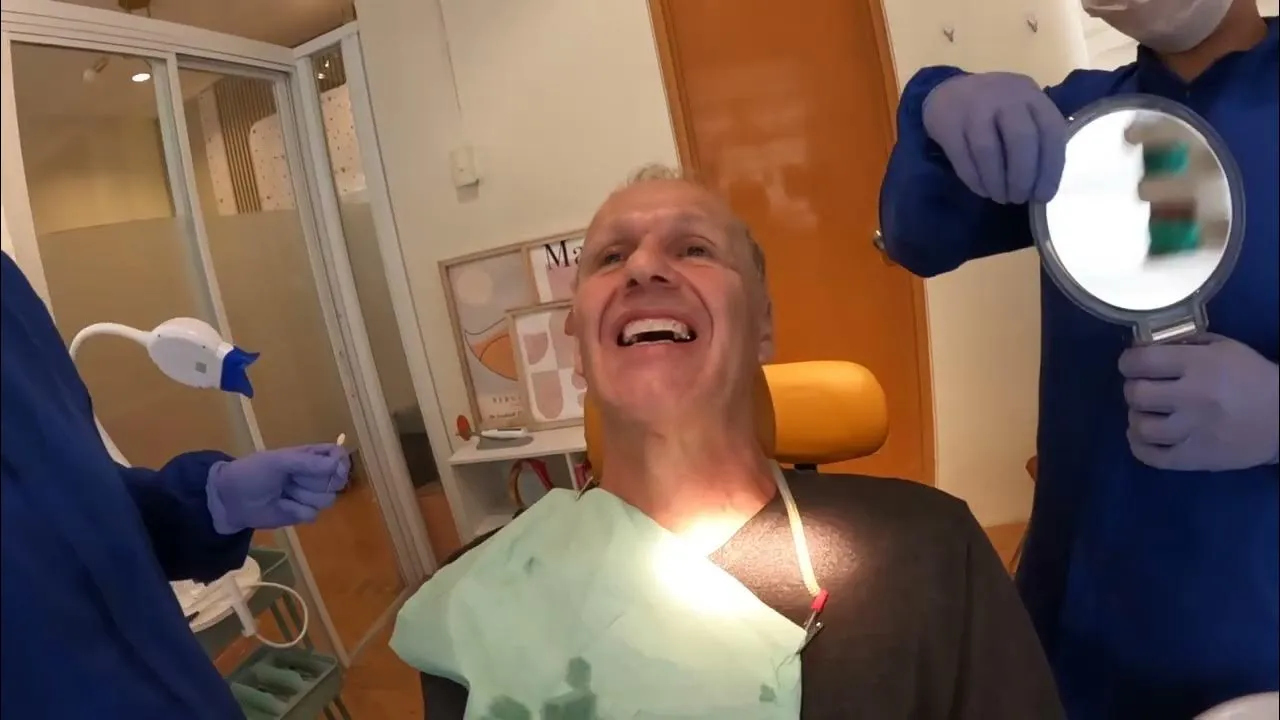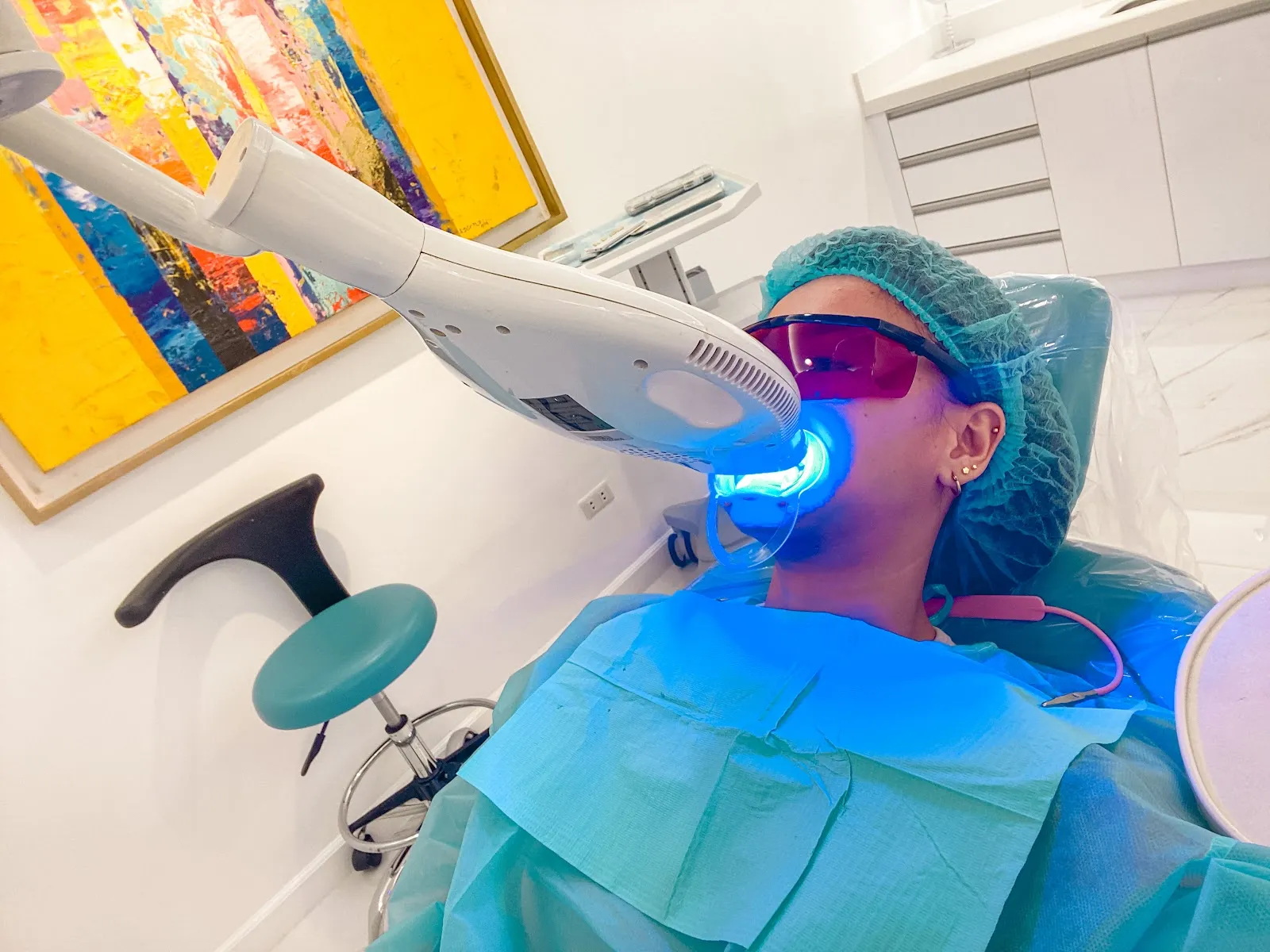What is Teeth Whitening?
Teeth whitening is a cosmetic dental procedure designed to lighten the shade of your teeth, improving your smile’s appearance. It involves removing stains and discoloration that have accumulated on the surface of your teeth over time. These stains can be caused by various factors such as the consumption of coffee, tea, red wine, and certain foods, as well as smoking and the natural aging process. The goal of teeth whitening is to restore the natural brightness of your teeth or even make them several shades whiter, boosting your confidence and enhancing your overall look. The process can be carried out professionally by a dentist or through the use of at-home whitening kits, each with its own set of advantages and considerations. Understanding the different methods and their effectiveness is crucial for choosing the best option for your specific needs and desired results. This guide provides you with information to help you make the right choice and know more about teeth whitening in Cebu City.
How Teeth Whitening Works
Teeth whitening works by utilizing bleaching agents, most commonly hydrogen peroxide or carbamide peroxide, to break down the stains and discoloration that have accumulated within the enamel and dentin of your teeth. These agents penetrate the tooth’s surface and oxidize the stain molecules, effectively lightening their color. The effectiveness of the whitening process depends on several factors, including the concentration of the bleaching agent, the duration of the treatment, and the type and severity of the stains. Professional teeth whitening procedures often use higher concentrations of bleaching agents and are performed under controlled conditions to ensure optimal results and minimize potential risks. At-home whitening kits, on the other hand, contain lower concentrations of the bleaching agent and are designed for gradual whitening over a longer period. The key is to find the right method and the right product depending on your teeth condition.
Different Types of Teeth Whitening

There are several types of teeth whitening options available, each offering a different approach to achieving a brighter smile. Professional teeth whitening, performed by a dentist, typically involves the use of high-concentration bleaching agents and can provide dramatic results in a single visit. These procedures often incorporate the use of specialized lights or lasers to accelerate the whitening process. At-home whitening kits come in various forms, including whitening strips, trays, and toothpastes. Whitening strips are thin, flexible strips coated with a bleaching agent that are applied directly to the teeth. Custom-fitted trays, provided by a dentist, are designed to hold a whitening gel against the teeth for a specified period. Whitening toothpastes contain mild abrasives and chemicals that help to remove surface stains, although they are generally less effective for deep discoloration. The choice of whitening method depends on your individual needs, budget, and desired results, so consulting with a dentist is recommended to determine the best option for your teeth.
Professional Teeth Whitening vs. DIY Kits
When it comes to teeth whitening, you have a choice between professional treatments and at-home DIY kits. Professional teeth whitening, done by a dentist, offers several advantages, including stronger bleaching agents, faster results, and personalized care. Dentists can also address any underlying dental issues that may affect the whitening process and ensure the safety of the procedure. DIY kits, on the other hand, are more convenient and cost-effective, allowing you to whiten your teeth at your own pace in the comfort of your home. However, they typically contain lower concentrations of bleaching agents and may not be as effective for severe staining. Additionally, there’s a higher risk of sensitivity and irritation if not used correctly. Before choosing a method, consider your oral health, the level of staining, and your desired results, and consult with a dentist to determine the best approach for you.
Cebu City Teeth Whitening Cost and Clinics
The cost of teeth whitening in Cebu City can vary depending on the type of treatment and the clinic you choose. Professional teeth whitening at a dental clinic typically costs more than at-home kits, due to the higher concentration of bleaching agents and the expertise of the dentist. The price may also be influenced by the clinic’s location, reputation, and any additional services included, such as a pre-whitening dental cleaning. It is important to research different clinics in Cebu City, compare their pricing, and read reviews to find a reputable dentist that suits your budget and needs. DIY whitening kits are generally more affordable and can be purchased at drugstores or online. However, keep in mind that the results may not be as dramatic or long-lasting as professional treatments. Always prioritize the safety and quality of the procedure when making your decision.
Benefits of Teeth Whitening

Teeth whitening offers several benefits that extend beyond just a brighter smile. A whiter smile can significantly boost your self-confidence, making you feel more comfortable and outgoing in social situations. It can also improve your overall appearance, making you look younger and more vibrant. Additionally, teeth whitening can motivate you to take better care of your oral health, as you’ll be more inclined to maintain your newly whitened smile. Having a brighter smile can also create a positive first impression, both personally and professionally, and can even make you feel happier and more optimistic. Therefore, teeth whitening is not only a cosmetic procedure but can also have a positive impact on your emotional well-being and overall quality of life. Consider consulting with your dentist to see how teeth whitening can benefit you.
Things to Consider Before Teeth Whitening
Before undergoing teeth whitening, there are a few important factors to consider. First and foremost, it’s crucial to have a consultation with your dentist to determine if you’re a suitable candidate for the procedure. Your dentist will assess your oral health, check for any existing dental issues like cavities or gum disease, and discuss your expectations. They can also advise you on the best type of whitening treatment for your specific needs. Other considerations include the potential for tooth sensitivity, which can occur during or after the whitening process, and the possibility of uneven whitening, especially if you have fillings, crowns, or other dental restorations. It’s also important to understand that teeth whitening is not permanent, and you may need to undergo maintenance treatments to maintain your desired results. Moreover, you must be realistic about the outcome and avoid over-whitening to prevent damage to your teeth.
Maintaining Your White Smile
Maintaining your newly whitened smile involves a combination of good oral hygiene practices and lifestyle choices. After undergoing teeth whitening, it’s important to brush your teeth twice a day with a whitening toothpaste that helps remove surface stains. Flossing daily is also essential for removing plaque and food particles from between your teeth, preventing new stains from forming. Limit your consumption of staining foods and beverages, such as coffee, tea, red wine, and dark-colored berries. If you do consume these items, brush your teeth or rinse your mouth afterward. Avoid smoking, as it can yellow your teeth and diminish the results of your whitening treatment. Schedule regular dental check-ups and cleanings to maintain your oral health and address any potential staining issues. Consider touch-up treatments as recommended by your dentist to keep your smile bright and beautiful.
